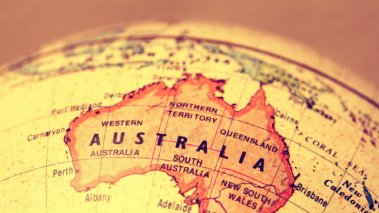Table of Contents
Survey of Australian Universities Reveals Dire Outlook for Campus Free Speech

A report by an Australian nonprofit organization on the speech policies and practices on that nation’s college campuses, published today, presents a grim outlook for the state of free speech at universities down under. The Institute of Public Affairs’ “audit” of campus policies was based off of—what else?—FIRE’s annual Spotlight on Speech Codes report and our Spotlight speech code database.
Unlike the United States, Australia’s Constitution has “no express right of freedom of communication or expression,” which came through loud and clear in the results. The Australian summarizes the audit aptly:
The Institute of Public Affairs’ inaugural Free Speech on Campus Audit examined the policies and actions of Australia’s 42 universities, finding that 33 had policies which substantially limited free speech or had acted censoriously.
The think tank gave eight institutions an “amber” rating, indicating their policies’ potential to restrict free speech was dependent upon implementation, or their attempts at censorship had been unsuccessful.
Only the University of New England passed the IPA’s test, which used methodology adapted from similar American and British studies.
(The studies referred to include FIRE’s work as well as the Spiked! Free Speech University Rankings of universities in the United Kingdom, which were also based off of FIRE’s rating system.)
Among the troubling policies identified in the report:
- Sarcasm is prohibited at the University of Queensland and Western Sydney University. The latter also bans “offensive language” and “defamation of individuals or their family or associates.”
- Every person who “uses abusive or insulting language” at Murdoch University can be fined $50. And don’t you dare use Murdoch’s computer network to share social media posts that might be “objectionable” or “offensive.” The University of Melbourne, likewise, prohibits students from “[p]osting offensive material on social media sites.”
- At RMIT University, students can be punished for speech that is “offensive or detrimental to the University’s interests and reputation”—so don’t criticize administrators, which might hurt the university’s reputation.
- The University of Adelaide warns students that they can be punished if they publish material that is “untrue about the University[.]” The notion that administrators are trusted arbiters of whether a statement about their institution is true or not is at best troubling.
- The University of South Australia prohibits students from using “any indecent language[.]”
- The University of Sydney prohibited a Muslim student organization from permitting an Islamic speaker, who supports imposition of Sharia law, to answer questions from students on the anniversary of the September 11, 2001, attacks.
As mentioned above, only one of the 42 universities surveyed earned a “green light” rating from IPA. So congratulations are in order for Australia’s University of New England, which—at least by IPA’s standards—is better at protecting free speech than the vast majority of America’s public colleges, even though the latter are obliged to be compliant with the First Amendment’s rigorous protection of free speech. FIRE is glad to see the idea of college speech code ratings spreading across the English-speaking world, and we hope it will lead to positive change across the globe.
Recent Articles
FIRE’s award-winning Newsdesk covers the free speech news you need to stay informed.

VICTORY: Michigan town declares Sept. 6 ‘First Amendment Day’ after FIRE sues its mayor for shouting down residents

USC canceling valedictorian’s commencement speech looks like calculated censorship

Back into the FIRE: Hasen’s response to FIRE and Rohde: Don’t read the press clause out of the Constitution — First Amendment News 420
